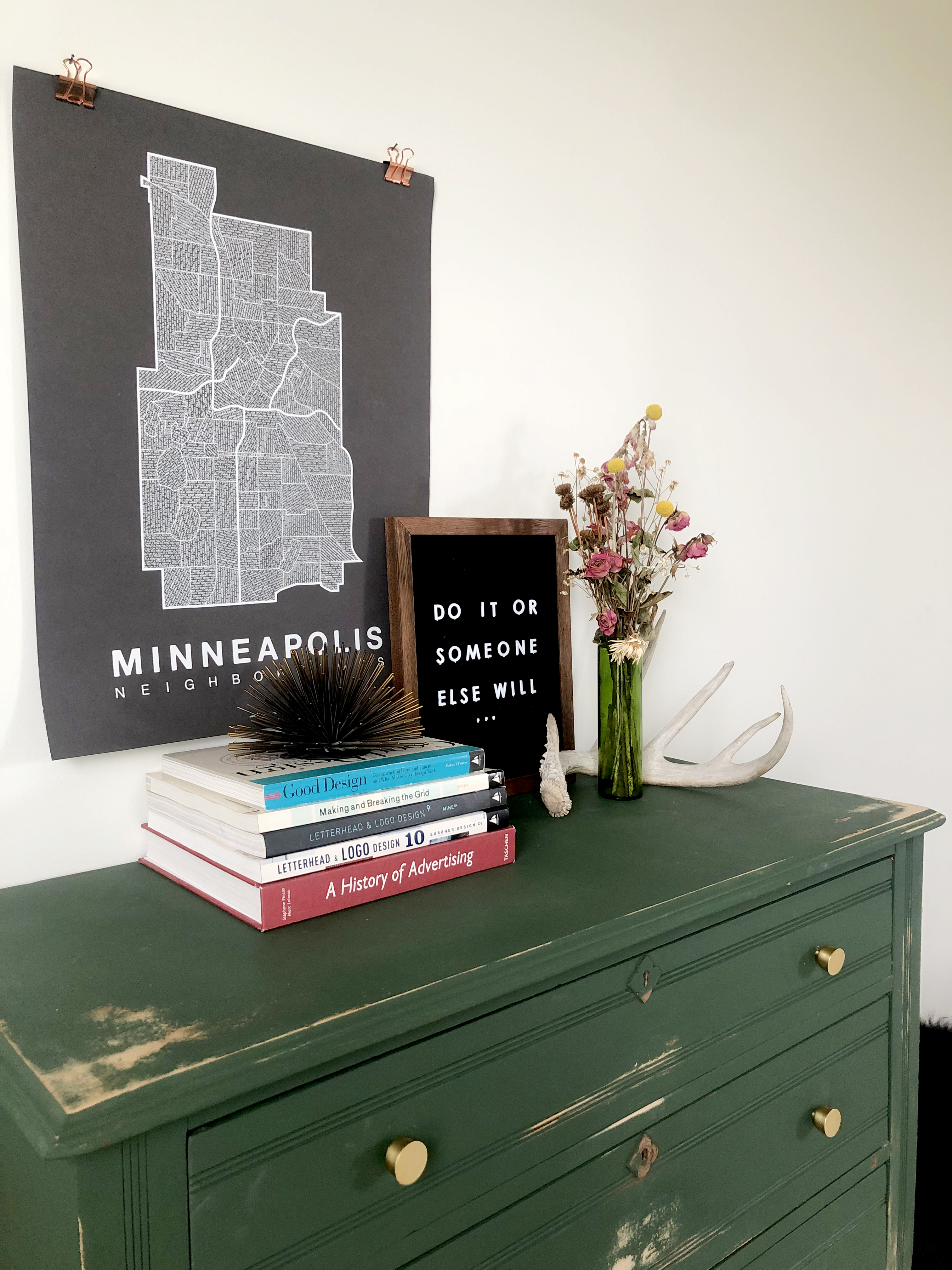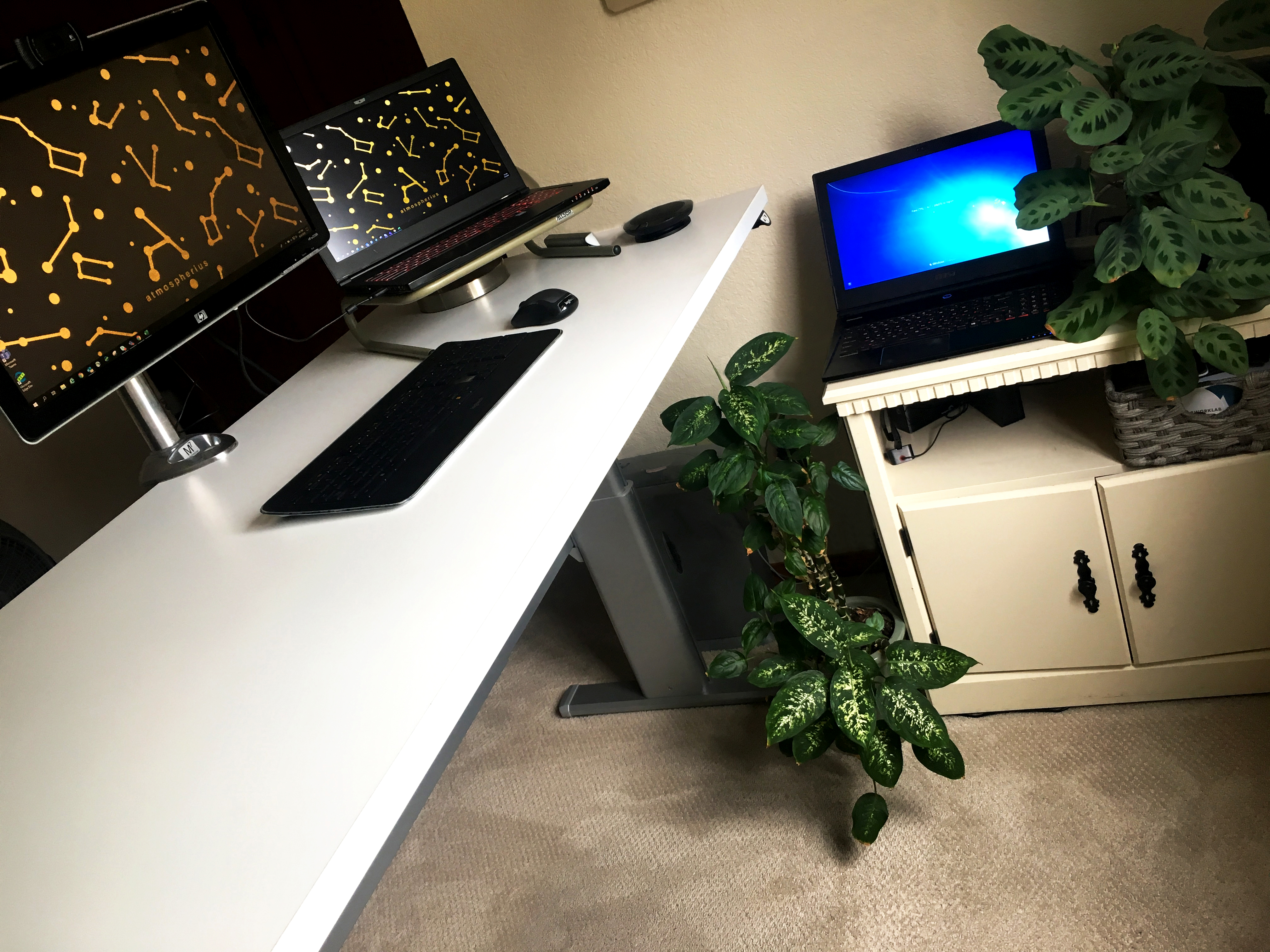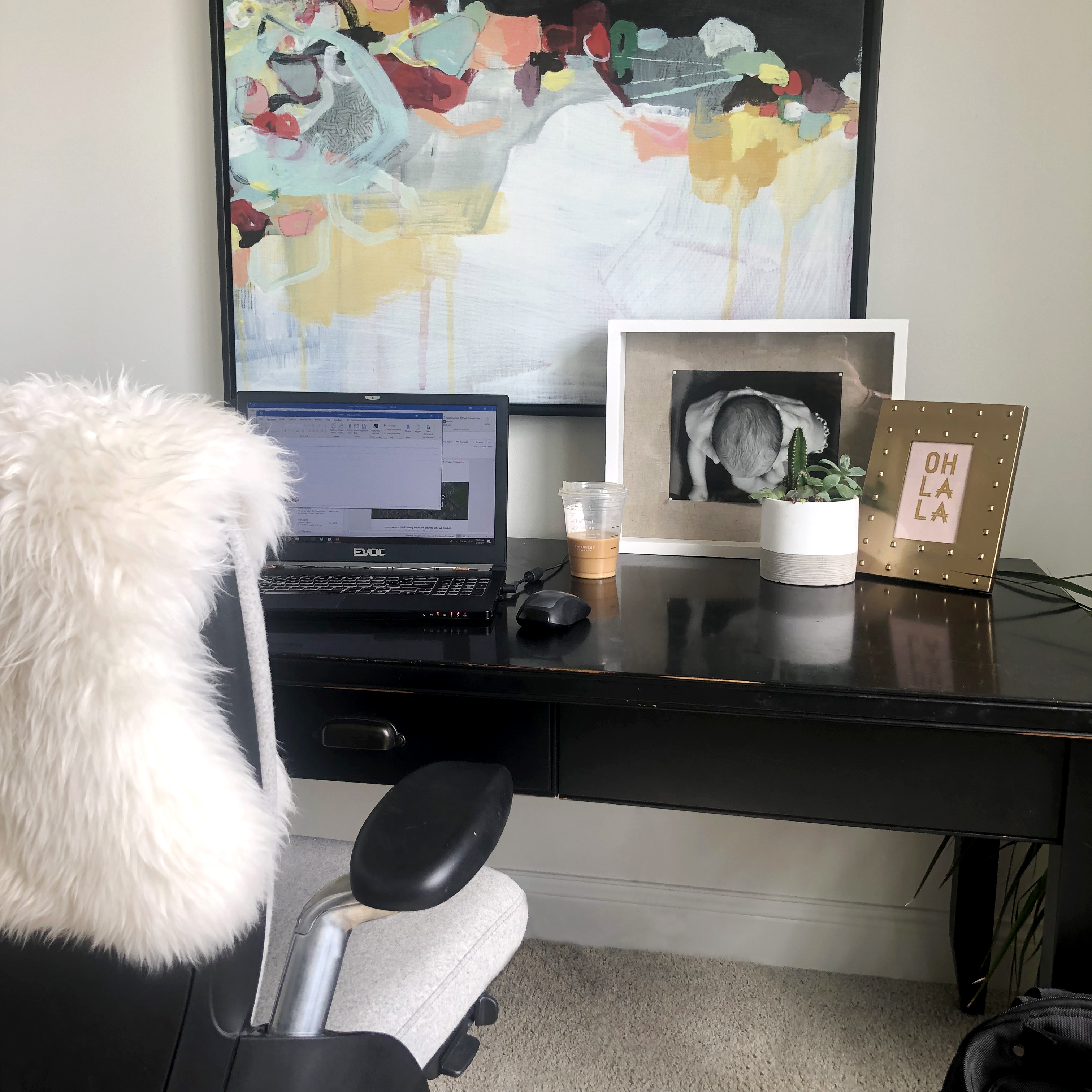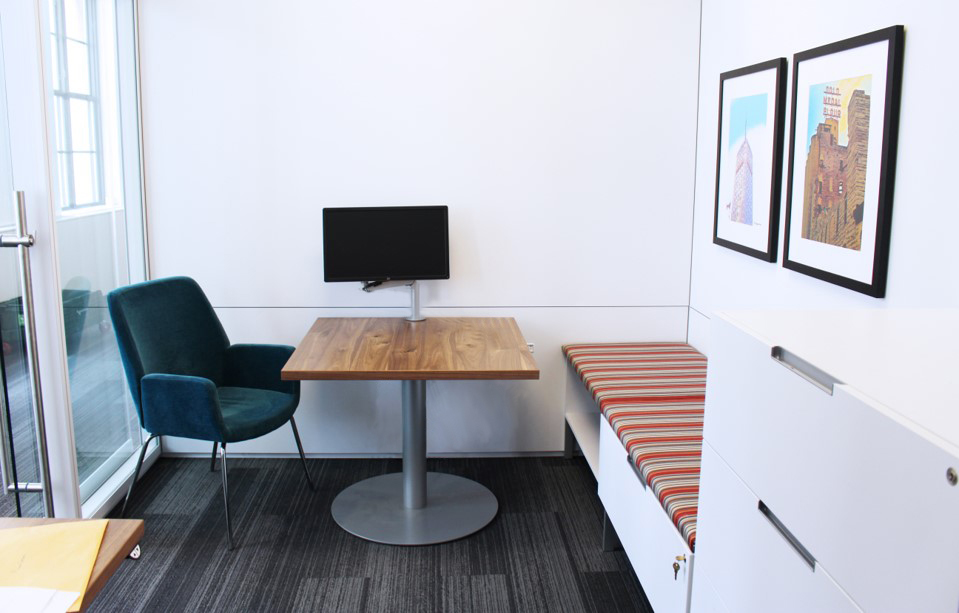
Every person has a way they work best and an environment they prefer–while we aren’t always able to choose where or how we work, many organizations throughout an array of industries are creating spaces to give their employees the options needed to do their best work. At Atmosphere, we’re fortunate to have a multitude of spaces allowing our team members choice and control over their day. But what about our remote coworkers or those who work-from-home (WFH) on occasion?
We sat down with four powerhouse women of Atmosphere to ask them about their workstyles and the spaces they occupy, what inspires them, and the pros and cons of how they work. Here’s what they said.
Nomadic: Liz, DESIGN
What is your favorite part of how you work?
I love the flexibility that being a Nomad provides. The ability to pick my spot everyday based on the tasks that I need to complete actually makes me more efficient. If I am working on an RFP, I might sit next to the sales person to bounce ideas off of them. If I am working with new product, I might sit at the Design bench so I can collaborate with other designers as questions come up. If I am cranking on a deadline, I might spend a few hours in an enclave to concentrate.
Do you have any tips for your respective workstyle?
Lighten your load! I used to have a bunch of paper and tools when I had a dedicated workstation. Now that I only have a drawer, I keep a lot less files than I used to. Everything can be scanned and saved digitally so I don’t feel need to keep a hard copy as well. Going Nomadic forced me to come up with a new filing system for myself and I stick to it. I carry one or two active files with me, and then I can file them away in my drawer once the project is complete. I make time every few months to go through my drawer and purge older files that I am done with. Its sort of freeing not to have all the stuff anymore! I use the shared office accessories like scissors and staplers and show people pictures of my family on my phone instead of in a frame at my desk.
How do you optimize functionality within your workspace?
I have a system that works really well for me wherever I set up for the day. I carry my laptop, mouse and charger with me in my work bag and can work with just those items wherever. If I need a bigger screen, I choose a spot with a monitor that I can plug into. I have a keyboard that I keep in my drawer that I can also grab if I need it. I bought a monitor and a keyboard at home, as well, so my set up is the same in the office as it is when I WFH. I keep my set up pretty simple and consistent, so it’s quick and easy to jump on wherever I am for the day.
Are there any drawbacks to your respective workstyle?
It might be a challenge when others are looking for me. I try and keep my Skype Messenger up-to-date everyday with my location so people can come grab me if they need me. Or just IM me and I’ll tell you where I am. 😊
If there’s anything else you’d like to speak to, add it here!
I feel like I have gotten to know my coworkers better by being a Nomad since I sit next to someone new every day. It’s been fun to strengthen friendships in the office and gain perspective on other people’s roles within the organization.

Occasional WFH: Natasha, Brand
What is your favorite part of how you work?
I love coming in to the office and feeling the energy around me. It’s important that I can quickly collaborate with other team members during planned, face-to-face meetings while also being present to allow for organic conversations to happen. Making genuine connections and feeling part of a larger network is important to me. It is also important that when I need focus time that I have the ability to get away from the buzz of our worklab and allow myself a quiet environment.
Do you have any tips for your respective workstyle?
Being selective on how much “stuff” I need helps me to bounce between different settings in the worklab and my home office. What I need is at my fingertips within my bag- my computer, charger and notepad is what I try to limit myself to.
How do you optimize functionality within your workspace?
I primarily use my home office for when I am doing heads-down, focused work during the day or at night. My goal is to always crank out a high-amount of quality work and maximize my time. To do this I need to remain absorbed in my work, so I make the space around me inspirational and intentional. I have good lighting, low music, plants and a variety of inspirational quotes and creative books nearby to reference for creativity. I don’t keep clutter on my desk or other items that may distract me- having a creative brain, this is hard to achieve and something that I always work at! My space is meaningful but minimalistic.
Are there any drawbacks to your respective workstyle?
Nope! I love being able to balance my need for energy and excitement in the workplace with an off-site place to focus in.

Private Office: Myra, HR
What is your favorite part of how you work?
My favorite part is that I’m not constantly trying to find private spaces because so much of my job requires confidentiality, whether it’s making a job offer, sensitive meetings or talking about benefits or whatever–having the ability to do that and just shift easily into those conversations, be able to shut the door and do it when I need to. And I think that particularly in my role, the need to do that multiple times a day if I had to find a private space would be difficult. Plus I am old school paper (still trying to break that habit!), so lugging around a book bag isn’t convenient due to the fact that there is so much paper involved with my position.
Do you have any tips for your respective workstyle?
It’s more so tips I would give myself! (“Get organized, sister!”) If you’re a nomad, you’re kind of forced to condense and be more organized, whereas I have all this space and can be a bit more chaotic. Though it is organized chaos, I do think sometimes we stay within our comfort zones unless we’re pushed to get outside of them. When we made the move to switch a lot of our team to be nomadic, I sometimes feel like I missed the boat on that. I do think there is some part of me that could be pushed to be a little more streamlined.
How do you optimize functionality within your workspace?
Constant re-prioritization. HR is one of those roles where you are constantly interrupted. I like the fact that when this office was designed, it was designed with this small, little meeting space. My team has the technology needed for Skype meetings, people can drop in and we have a place to sit and chat. Being able to have the multi-functionality within this space is really what makes it optimal for me.
Are there any drawbacks to your respective workstyle?
I do find it a bit isolating. The office is positioned where it is positioned on purpose with this little hallway and facing away from the team so people aren’t questioning, “why is so-and-so in the HR office?” However, I have to be intentional about going out and chatting with people, especially since I’m an extrovert. Conversations with my coworkers are more intentional versus organic because I have to make the effort to be social; I don’t have regular chatty conversations because I’m sitting there, I have to get up and go seek someone to have that with.
Remote: Megan, Marketing
What is your favorite part of how you work?
I appreciate the flexibility to work in a comfortable and personal setting, near a window, listening to birds, able to balance family needs as needed. Working remotely for me means my default work-mode is heads-down, intense focus, with control over work-mode transitions, such as meeting time with coworkers.
Do you have any tips for your respective workstyle?
I would say that working remotely is not for everyone. Some people thrive in high energy atmospheres. Because I am not seeing coworkers daily, I try to schedule time to meet or talk on a regular basis, use a variety of methods to communicate, and be as responsive as possible.
It also can be hard to walk away from work, and/or tempting to work on the weekends because your entire toolkit is so accessible. This aspect makes projects that require more creativity easier to expedite because there are relatively zero hurdles, and yet disconnects or desensitizes you from personal or family needs. Therefore, boundaries are necessary for health and wellness, yet are fluid, and can be very challenging to balance.
Depending on your technical skills, it helps to be more independent and able to trouble-shoot technology issues. We only have IT staff in Minneapolis, but they travel to other regions if needed. When I have an issue, I try to research and test as much as possible prior to submitting a ticket, and do whatever I can to keep myself operational.
How do you optimize functionality within your workspace?
I’m left-handed, and was able to orient my desk so I face a door that is slightly to my left, and I have ample workspace to my left. All my devices are parked at my right side, my external monitor is lifted by an arm, and keyboard and mouse are wireless. I also have a height-adjustable desk, and easy access to power. Since I do have full control over my layout, air temperature, sunlight, etc, the configuration feels completely natural for me.
I am also lucky to have a role that is paper-free, so I have almost no storage needs other than a bit of spare equipment.
Are there any drawbacks to your respective workstyle?
I am quite introverted, and am therefore very comfortable working in an isolated setting. However, I don’t hear background conversations, which can provide valuable context to current business issues or conditions. I also am unable to network with our target audience in person, so I rely heavily on other listening sources such as social media like LinkedIn, and phone conversations or chats. In a positive way however, I work entirely on neutral ground, balanced between all the cultural differences in each region. So while I may miss some contextual perspective, I also hopefully lack bias.
If there’s anything else you’d like to speak to, add it here!
Working at home, or even working closer to your residence at a co-working space, is more economical and environmentally-friendly for workers and employers. I do not drive a car to work, eat out, or have a closet full of work clothes—so remote work strongly aligns with my personal values. I can appreciate how economic and environmental factors, recruitment and retention opportunities, or even cyber-security, are driving the popularity and need for expanding remote work.




